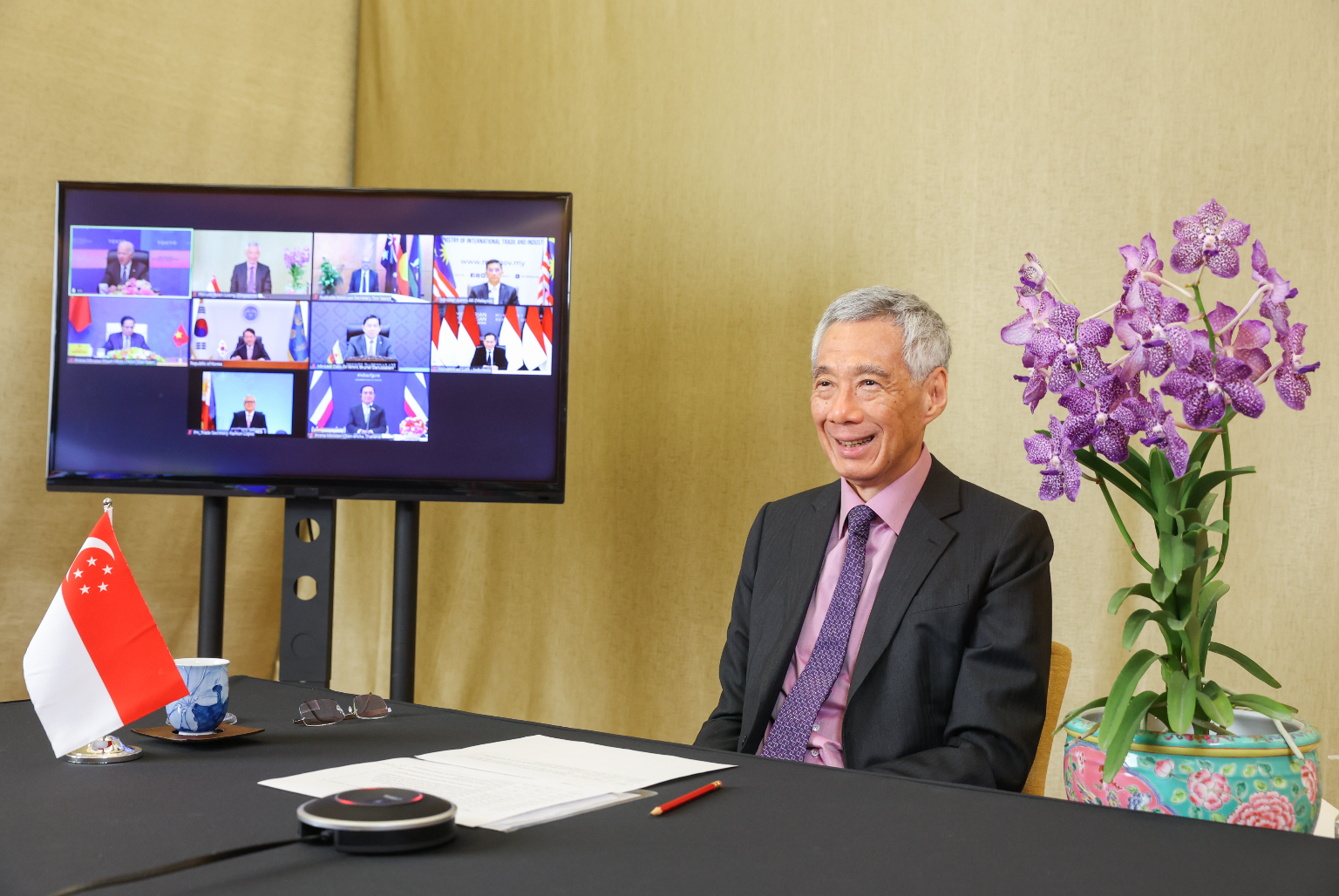US-led economic framework for Indo-Pacific region should remain open and inclusive: PM Lee
Sign up now: Get ST's newsletters delivered to your inbox

Prime Minister Lee Hsien Loong said the four pillars of the Indo-Pacific Economic Framework for Prosperity include issues that will resonate strongly in the region.
PHOTO: MCI
SINGAPORE - The Indo-Pacific Economic Framework for Prosperity (IPEF) should remain open, inclusive and flexible, said Prime Minister Lee Hsien Loong at the launch of the US-led initiative on Monday (May 23).
It should enable members to continue working with other partners in "overlapping circles of cooperation", and leave membership open to others to join later, when they are ready to do so, he added.
Touted as the centrepiece of the United States' strategy for economic engagement with the region, the framework will cover areas such as new rules governing digital goods and services, and commitments to clean energy and decarbonisation, said US President Joe Biden at the launch event in Tokyo.
The event was attended by leaders from 13 countries which form its inaugural members: Australia, Brunei, India, Indonesia, Japan, Malaysia, New Zealand, the Philippines, Singapore, South Korea, Thailand, US and Vietnam.
Apart from Mr Biden, Japanese Prime Minister Fumio Kishida and Indian Prime Minister Narendra Modi also attended in person.
Attending virtually, PM Lee said: "Singapore welcomes the IPEF. We've always upheld an open, inclusive and rules-based order that is stable, secure and prosperous.
"The IPEF is of both strategic and economic significance. It can be a valuable platform for the US to exercise economic diplomacy in the region.
"And it clearly signals the US' continued commitment to engage with its partners in Asia, and deepen ties across the Pacific."
US officials have stated that they do not envision the framework, which was mooted by Mr Biden at the East Asia Summit in October last year, as taking the form of a traditional free trade agreement.
It will instead focus on four "pillars" of supply chain resilience, infrastructure and clean energy, anti-corruption, as well as fair and resilient trade.
It is unlikely to include market access or lower tariffs, which analysts have said are what South-east Asian countries want.
Describing the IPEF as having a forward-looking and positive agenda, PM Lee said the four pillars of IPEF include issues that will resonate strongly in the region.
In particular, they will also cover cooperation in the digital economy and the green economy, which show promise for growth, he said.
"We look forward to working closely with the US and other partners to flesh out the IPEF, and we hope that in due course, it will lead to even greater and more ambitious economic engagement between the US and the region," said PM Lee.
Other leaders who spoke at the launch event at the Izumi Garden Gallery in Tokyo echoed the theme of inclusivity, and expressed hopes for the framework's success.
Mr Biden said the framework should drive a "race to the top" among nations of the Indo-Pacific region.
"I want to be clear: The framework will be open to others who wish to join in the future, if they sign up and meet the goals and work to achieve those goals," said Mr Biden, who is scheduled to attend a Quad summit with Australia, India and Japan.
Indonesia's Trade Minister Muhammad Lutfi, who attended on behalf of President Joko Widodo, welcomed the intentions of many countries to strengthen economic relations in the region, but added: "We do not wish to see the IPEF merely as an instrument to contain other countries."
New Zealand's Prime Minister Jacinda Ardern said the initiative has the potential to boost growth and support regional economic recovery as the world moves on from the Covid-19 pandemic.
"In the post-Covid-19 recovery, greater economic engagement will be necessary. Now is the time to open doors, not close them," she said.


